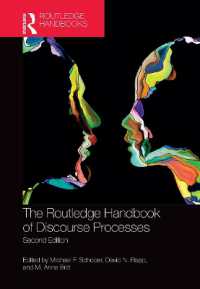Full Description
At the heart of the anthropological project lies a need to tackle the conundrum of the human condition. And yet, the conundrum persists. Actually, the reflection over the conditions and possibilities of their own existence constitutes the greatest of human abilities, as well as the most ineffable of their limits. Anthropology seldom addresses this. When it does, it does not allow it to have a significant import in its reflections. The Task of Having to Be: Tradition, Place and Human Finitude in Dialogue with Japan does not try to solve the conundrum. Rather, it sheds some light over the reasons why it belongs to its nature to remain unsolved. Taking as a starting point a Japanese rural community and some elements of Japanese culture, the author reflects dialogically on several issues: the nature of tradition, the essence of places, the limitations of anthropological discourse on subjectivity and the self, and the connection between religion and human finitude. Cross-cutting these reflections is a concern with what precedes individual subjectivity; i.e, what grounds ontologically what we are and can be. To glimpse the conundrum that the human is entails, first and foremost, the realisation that there is always something in what we are that precedes the individuals and subjects we yearn to be.
Contents
Acknowledgments
Prologue
Chapter 1: The Simultaneousness of All Historical Times: Ethnographic Context and Introductory Notes
Chapter 2: Beyond the Particular: Anthropology and Dialogue
Chapter 3: Tradition as a Historical Subject Matter
Chapter 4: Being, Place, and Language
Chapter 5: Experience Turned onto Itself
Chapter 6: Human Finitude and the Forms of the Ineffable
Chapter 7: On What Befalls Upon Us
Closing Remarks: Accepting Finitude
Bibliography
About the Author








